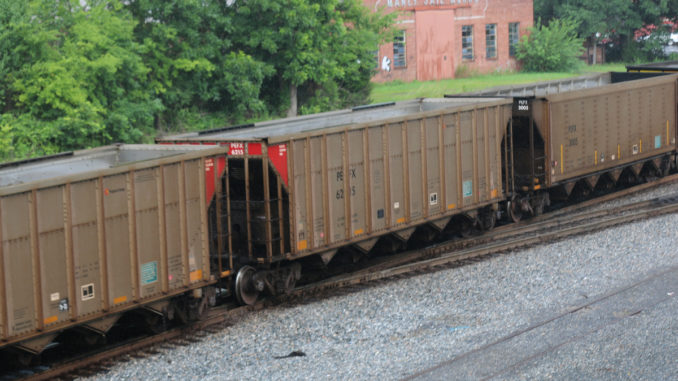
A pair of Republican lawmakers signaled opposition to the potential application of what they say is a patchwork of pollutant discharge permitting requirements in rail transportation of coal and other bulk commodities over river crossings.
U.S. Rep. Sam Graves, R-Missouri, the ranking member on the House Committee on Transportation and Infrastructure, and U.S. Rep. Rick Crawford, R-Arkansas, the ranking member on the Subcommittee on Railroads, Pipelines, and Hazardous Materials, signaled their opposition in a letter to the Surface Transportation Board (STB).
This issue stems from a 2016 federal court case that left open the question of whether freight railroads carrying coal or petroleum coke across the country need multiple state and federal pollution permits if trace amounts of those materials could drift out of rail cars and into a body of water.
“This is a textbook case of regulatory overreach. It makes absolutely no sense to now start applying pollution and permitting requirements to railroads because trace amounts of a commodity may fall from a rail car as it passes over a river,” Graves said in a news release. “This court case isn’t about protecting our waters at all – it’s about whether a reasonable regulatory framework for interstate commerce is going to be hijacked by a radical agenda to eliminate coal and other fossil fuels at all costs.”
Graves and Crawford wrote to the STB in support of the Interstate Commerce Commission Termination Act of 1995 (ICCTA) preemption of the Clean Water Act when it comes to the transportation of coal and other bulk commodities by rail. The STB is currently taking comments on a petition submitted by the Association of American Railroads, which requests the STB to address the relationship between the two statutes.
“Utilizing the Clean Water Act to stifle industry with no environmental benefit is not good governance,” Crawford said in a news release. “Energy, agriculture, and other industries that rely on railroads to move bulk commodities should not be subjected to ridiculous applications of the law.”

